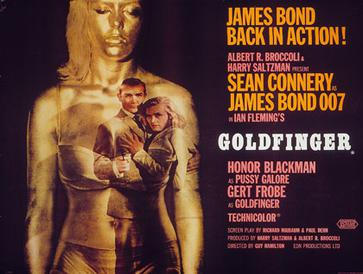The Girl With The Bette Davis Eyes- Before The Deluge-Bette Davis’ “Jezebel” (1938)-A Film Review
DVD Review
By Senior Film Critic Sandy Salmon
Jezebel, starring Bette Davis, Henry Fonda, George Brent, 1938
No today I am not going to bemoan the fact that once again I have started on something like my old friend and fellow film critic Sam Lowell called a “run,” a run meaning jumping on a subject, here the films of the girl with the Bette Davis eyes Bette Davis herself, and running it into the ground if that is where it would finally lead. No today I have a bigger idea, an idea about what could and could not be cinematically produced today in quite the same way that it was yesterday as in the case of this film under review Jezebel (a topic which could equally include the role Ms. Davis did not get the classic Gone With The Wind as well). What I am talking about, although I will have to temper this with the recent happenings ostensibly around the issue of preservation of Confederate memorials, is the way the so-called gentile ante-bellum South was portrayed in the film from the cotton is king gentry to the fate of lowly blacks slaves whether in the house or in the field. I won’t belabor the point further since this film passes for a romantic drama of the times except to note that this subject is worthy of some kind of doctoral dissertation if it hasn’t already sparked one.
So what is the hullabaloo all about. Julie, a strong-willed Southern belle of means who through a guardian, male of course, has a big plantation outside of New Orleans in ante-bellum days (the year the film’s plot is supposed to start, 1852, lets us know that civil war clouds are brewing, that various compromises will come undone before the decade is over although the failure to keep those compromises intact was hardly the problem of why the bloody conflict seared the country asunder-continuing slavery in half the country was). Julie, played by Ms. Davis last seen in this space by me giving her fiancé played by George Brent also starring here the heave-ho to run away with her sister’s husband in In This Our Life, besides being head-strong is leading her beau, Pres, a merry chase. Pres, played by Henry Fonda last seen in this space as Tom Joad fresh from Oklahoma’s McAllister Prison for killing a man getting ready to run out to California looking for Paradise but finding nothing but anguish and once again a need to be on the run from John Law in the film adaptation of John Steinbeck’s The Grapes Of Wrath, is a son of Southern gentry who through his banking connections has dealing with the cotton-starved North. By the way to round out the leading roles this shameless, hence Jezebel, Julie has thrown over Buck Cantrell, a free-spirit sportsman gentleman reflecting the old values of the Old South, the role that the afore- mentioned George Brent played, for Pres.
Of course you can lead a guy, even an ante-bellum member of the Southern gentry on that merry chase only so far before he sends you to the big step-off. The actual event if you can believe this that triggered the adios from Pres was when Miss Julie decided for spite to wear a red dress to some silly cotillion and received nothing but the cold shoulder and humiliation from the assembled guests who were shocked beyond belief that an unmarried woman would break the code and not wear white. That is only the most egregious example of how the gentile slow slavery-drive customary code Southern way of life differed from the Northern busy building factories shoulder to the wheel way of life. The sporting life complete with mint juleps and an off-hand duel when somebody, some man, thought he was being insulted were others. Old Buck Cantrell was the epitome of the old ways that were crumbling a bit even then.
But back to the core romance. Or rather failed romance once Pres gave Julie the heave-ho and she refused out of vanity, spite, ill-humor or some combination of them all to go after him. That finishes the prologue here. The big deal, the way the coming civil war gets noticed and is played out is when Pres, having gone North to forget Julie and learn some capitalist business skills, comes back after a year with a fresh as a daisy Northern wife a happening which was treated by some of the gentry around Julie, notably Buck, as an affront to Southern womanhood. Of course Miss Julie having pined away for Pres for her transgression is both frantic and bitter when she finds out she has been thrown over for another woman. But this hussy will seek her revenge-seek to make Pres jealous of Buck when she starts playing court to him. No go. Pres is all in for his wife as he makes clear to her constantly. (Here is where a scene that I think would be cut today comes in when now knowing she has lost Pres Miss Julie gathers around her a coterie of slaves and has a sing-along with them dancing and prancing “all the darkies are gay” style as Stephen Foster would put it in a song.) Moreover dear old Buck knowing that he has been used by Miss Julie in her scheme winds up under a winding sheet having lost a duel to Pres’ younger brother when the lad called him out for his ill-mannered behavior toward his sister-in-law.
Now Ms. Davis may have done an Oscar-worthy performance in this film although I think she was robbed when she played the tart/waitress in the film adaptation of Somerset Maugham’s Of Human Bondage and failed to get the coveted award but apparently those who directed and produced the film could not leave her as a fallen sullen Jezebel. They needed some redemption for her. The way Miss Julie was able to rehabilitate herself was by nursing Pres when he came down with the yellow fever that periodically swept the city and surrounding areas of New Orleans when the authorities, mimicking today’s climate change deniers, failed to drain the swamps and take other precautions. Not only did she nurse him but arguing with Pres’ wife that she should accompany him to the deserted island where the known yellow fever cases were dumped. That wife relented and Miss Julie got to pay penance. Not Ms. Davis’ best picture despite her performance but good. You can think through how such an ante-bellum scenario it would be set up today.




.jpg)


